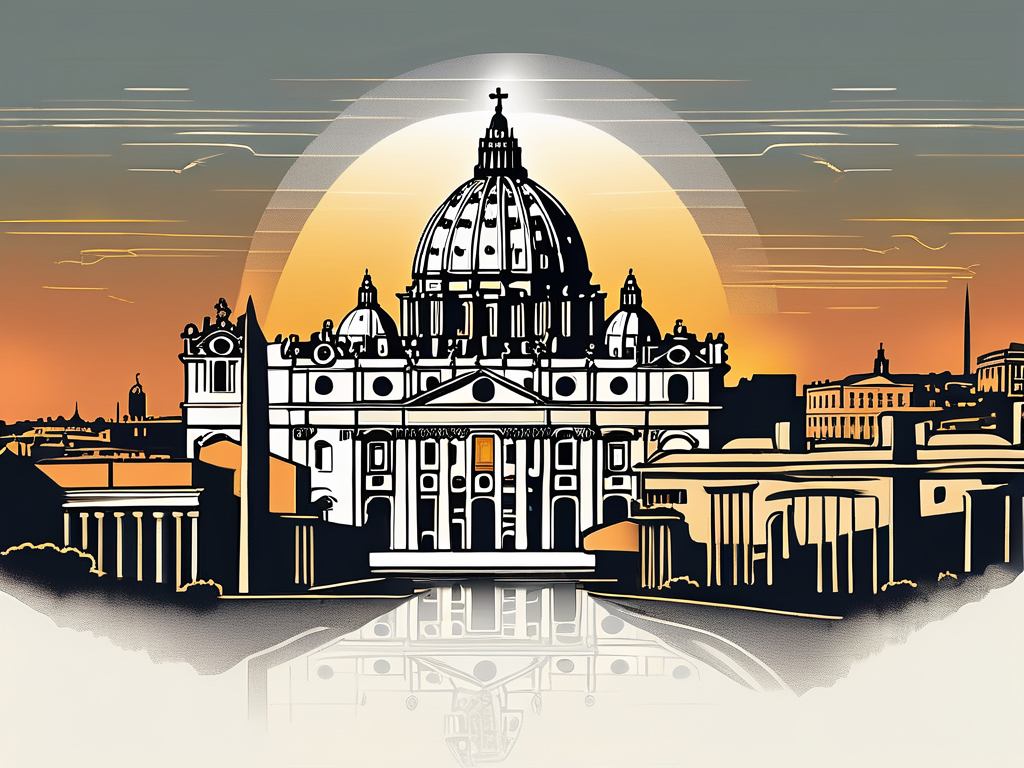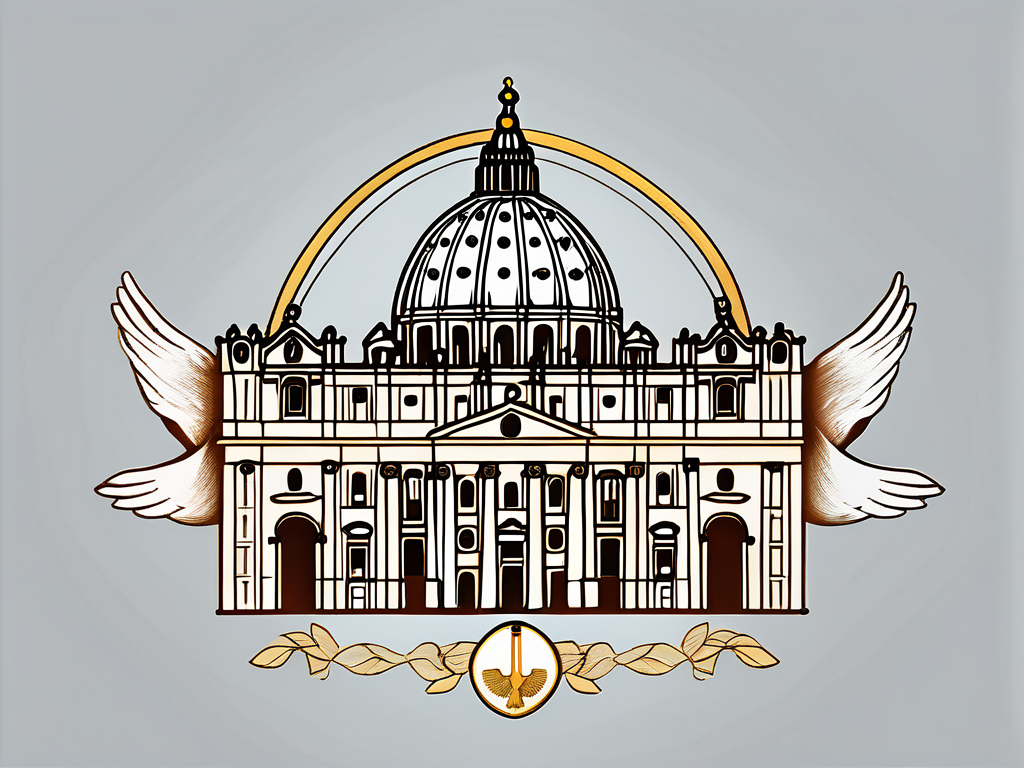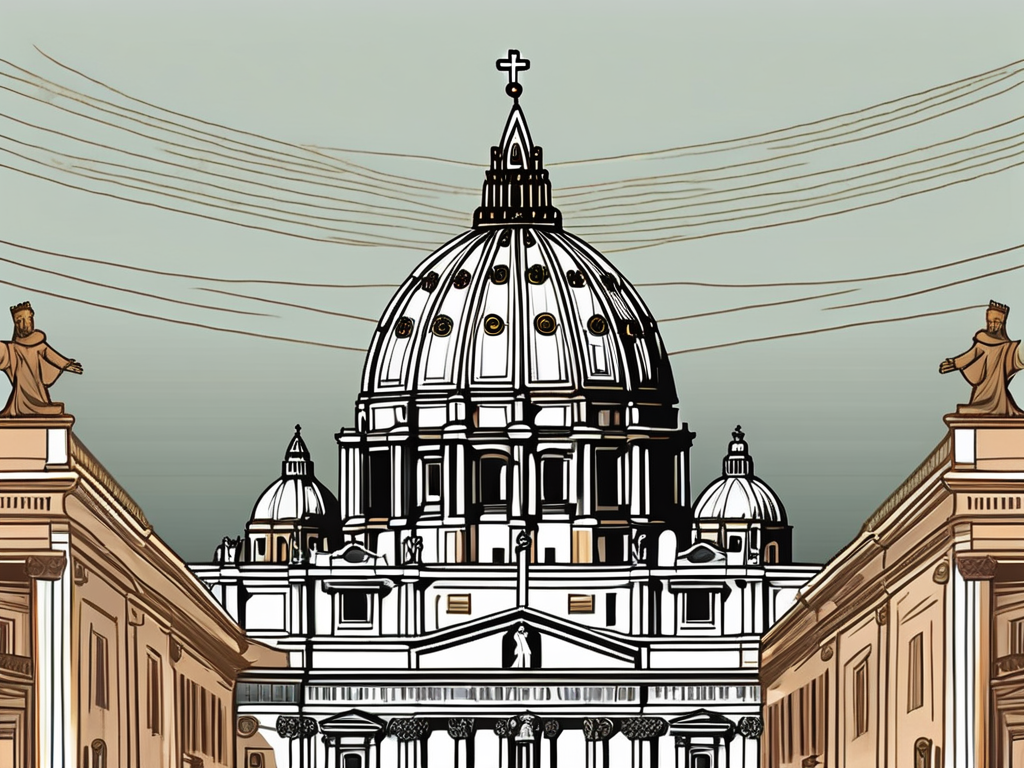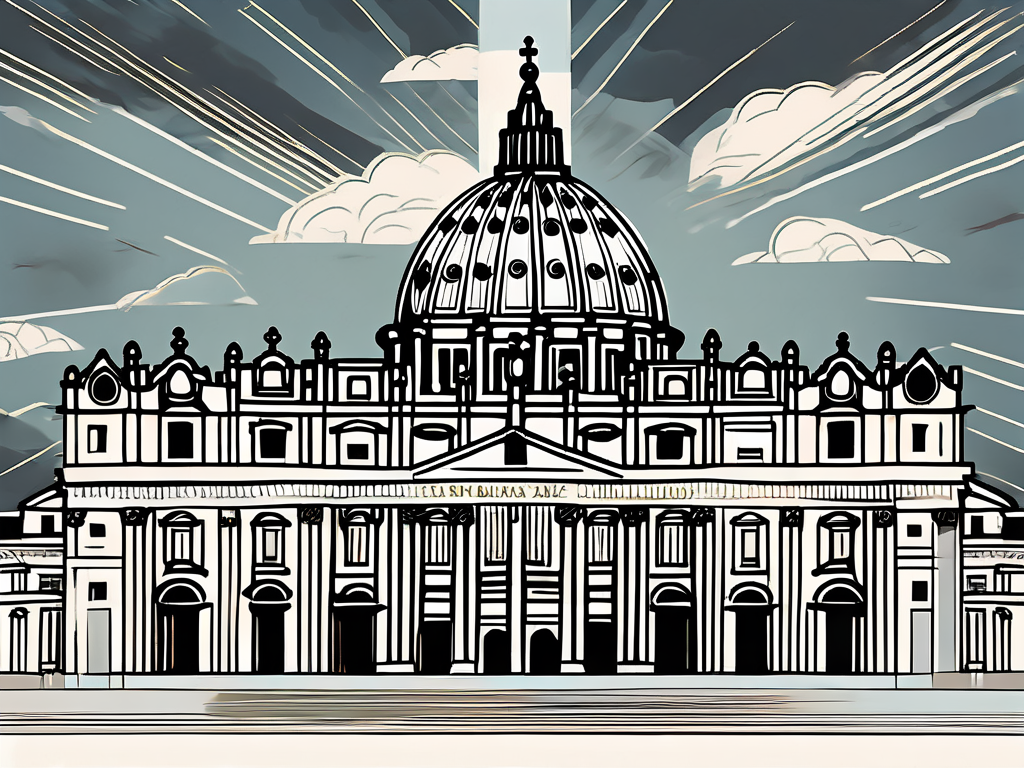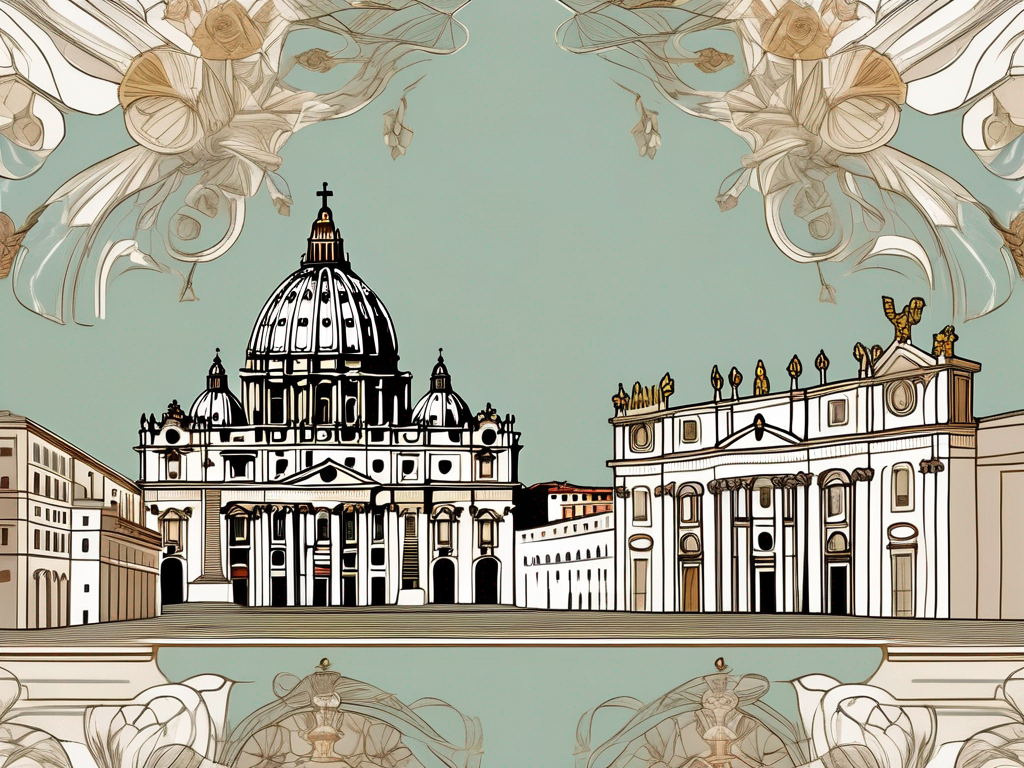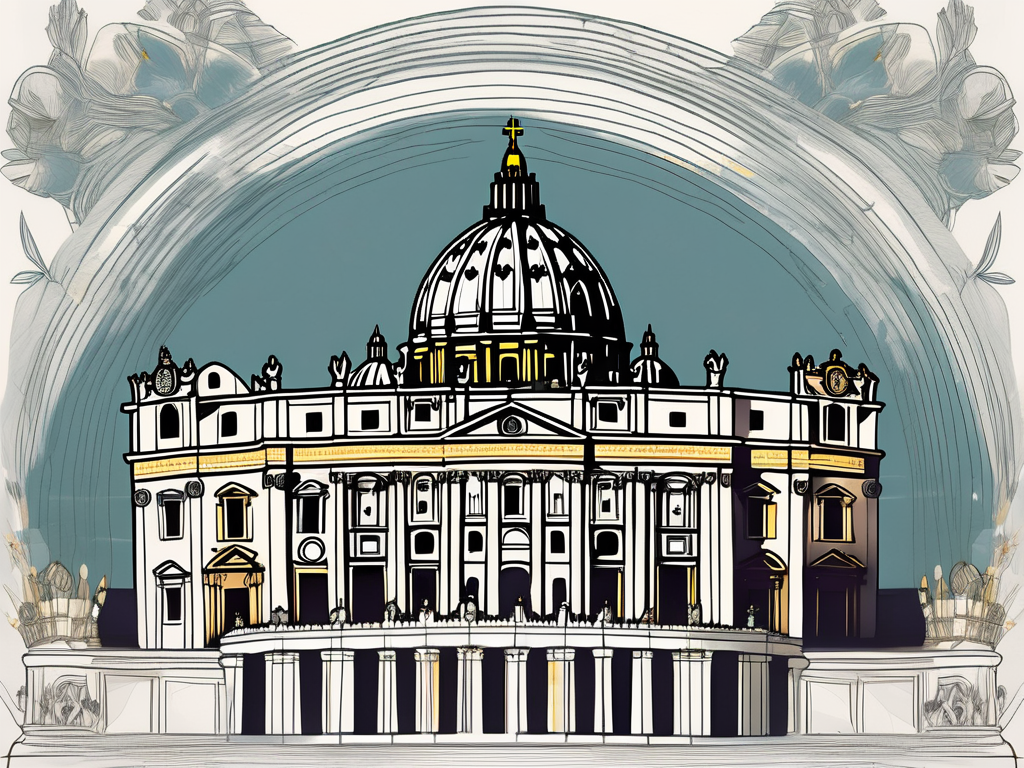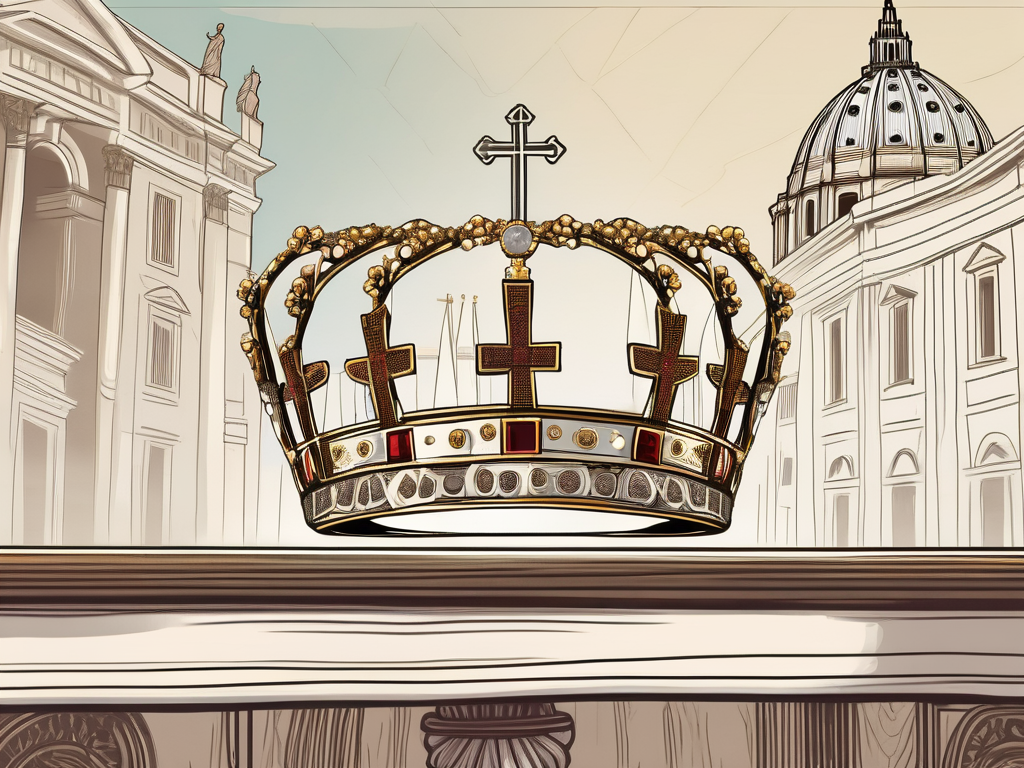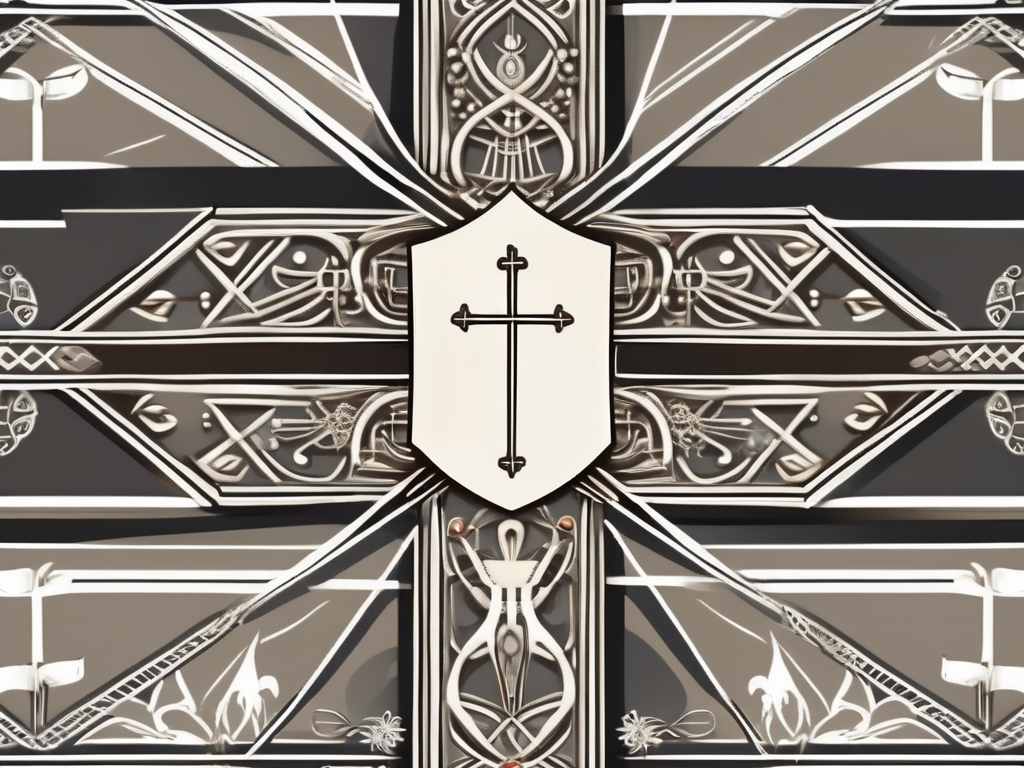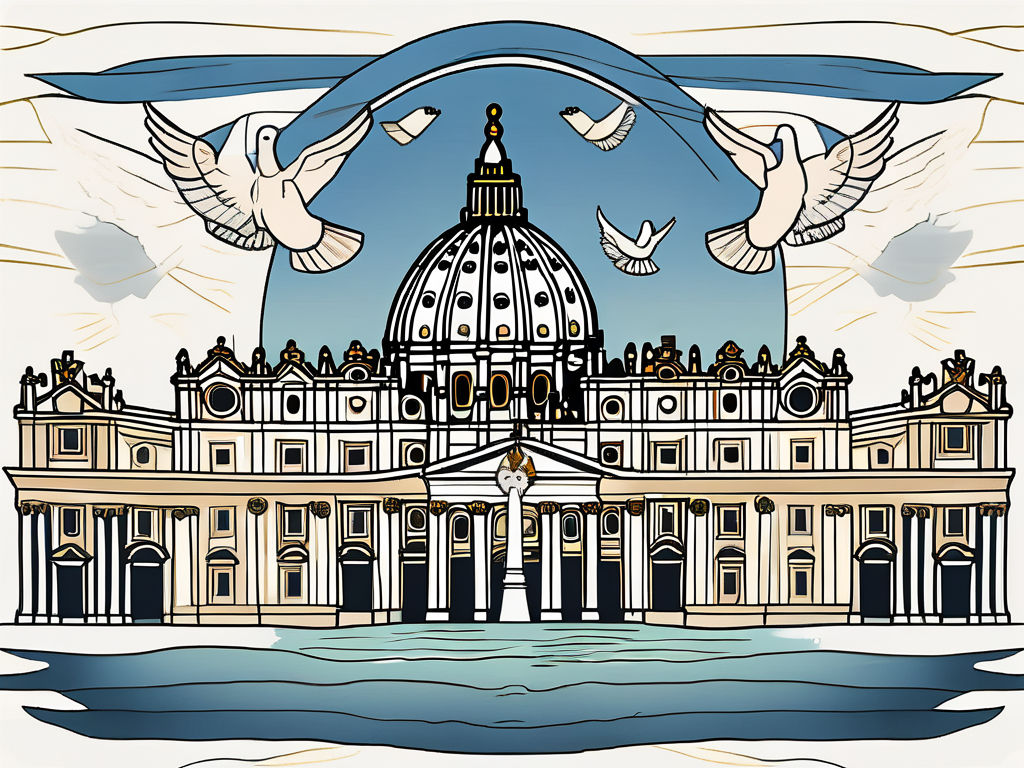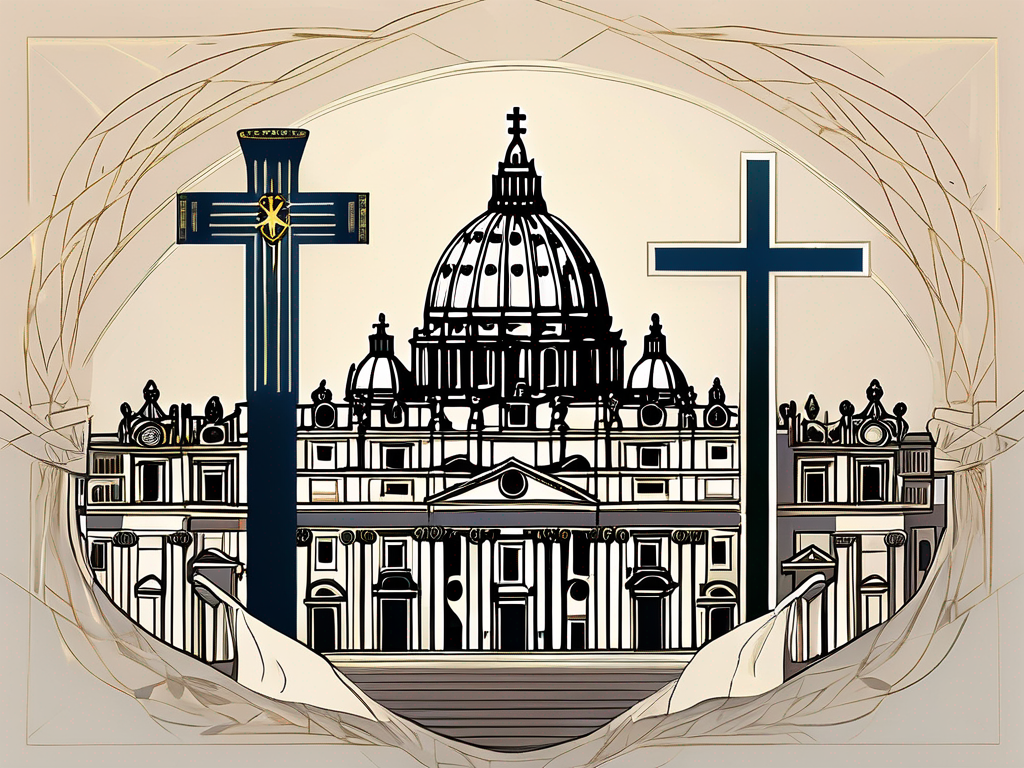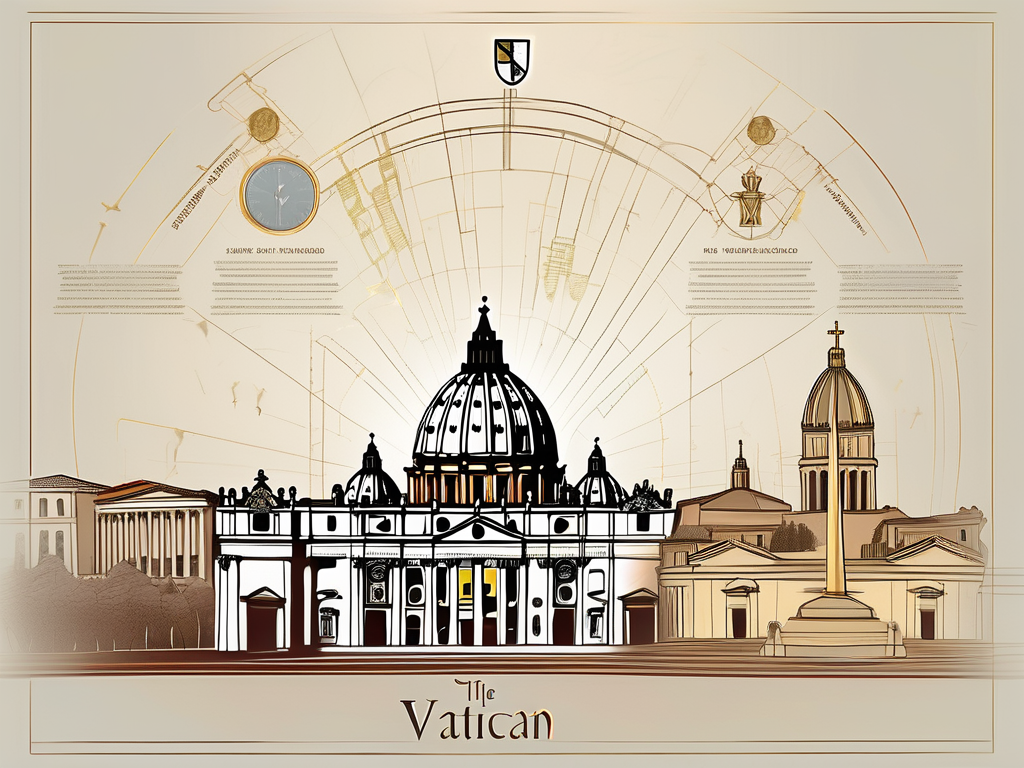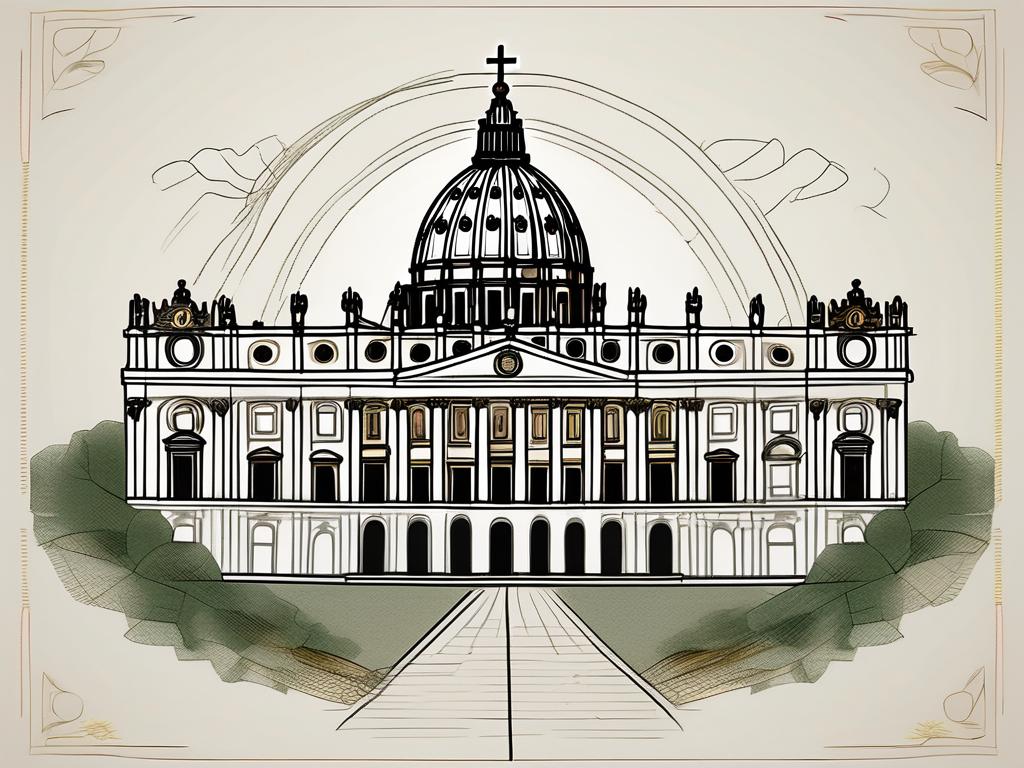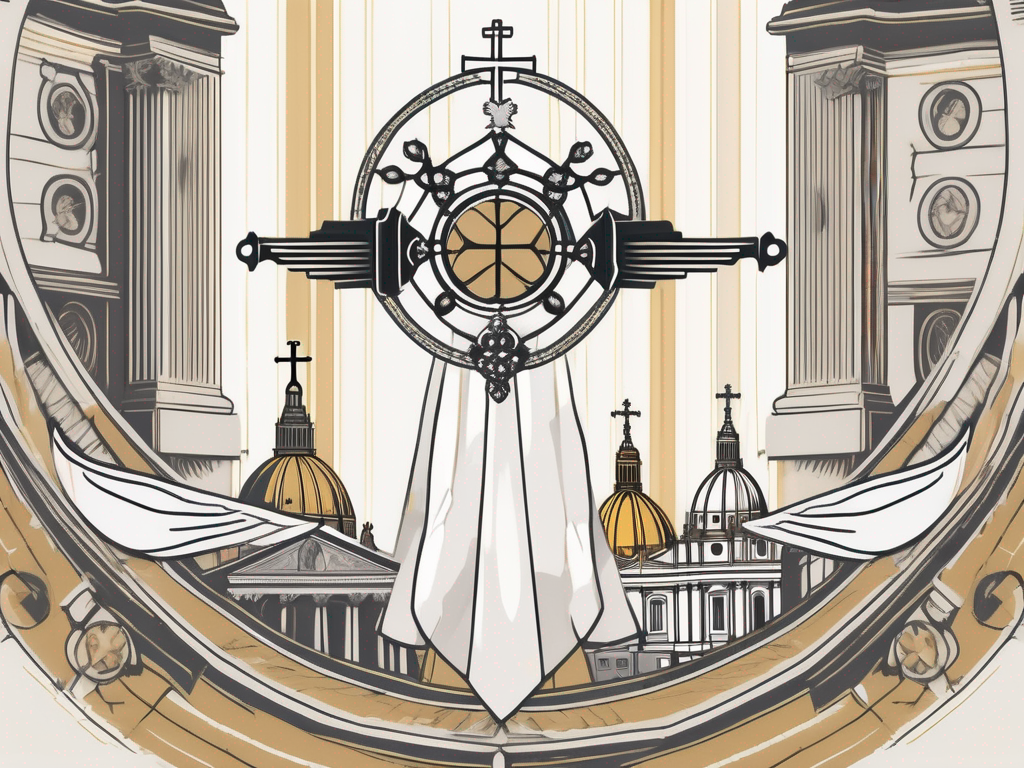Pope Paul IV, born Giovanni Pietro Carafa, was a prominent figure in the history of the Catholic Church. His life and papacy were marked by notable achievements and controversies that continue to shape the church to this day. Let’s delve into the fascinating journey of this influential pope.
Early Life and Education of Pope Paul IV
Birth and Family Background
Giovanni Pietro Carafa was born on June 28, 1476, into a noble Neapolitan family. Coming from a privileged background, he received an excellent education and was exposed to the intricacies of politics and religion from an early age.
Carafa’s family, known for their wealth and influence, played a significant role in shaping his early life. Growing up in a household filled with intellectuals and influential figures, Carafa was surrounded by discussions on politics, philosophy, and religion. These conversations sparked his curiosity and laid the foundation for his future endeavors.
As a young boy, Carafa’s parents instilled in him a strong sense of devotion to the Catholic faith. They emphasized the importance of religious values and encouraged him to explore his spirituality. This upbringing would later shape his decision to pursue a career in the church.
Education and Religious Training
Carafa’s devout upbringing led him to pursue a career in the church. He studied theology and philosophy in Naples and Rome, acquiring an extensive knowledge of religious doctrine. Carafa’s commitment to the Catholic faith would later drive him to enact significant reforms during his papacy.
During his time in Naples, Carafa immersed himself in the study of theology, delving deep into the works of renowned theologians and philosophers. His thirst for knowledge was insatiable, and he sought out mentors who could guide him on his intellectual journey.
Carafa’s education extended beyond the confines of the classroom. He actively engaged in theological debates, attended lectures by esteemed scholars, and participated in religious ceremonies. These experiences not only broadened his understanding of the Catholic faith but also exposed him to the diverse perspectives within the Church.
Upon moving to Rome, Carafa continued his studies at prestigious institutions, where he further honed his theological and philosophical skills. He immersed himself in the vibrant intellectual atmosphere of the city, engaging in discussions with scholars and theologians from various backgrounds.
Carafa’s religious training went beyond theoretical knowledge. He actively sought opportunities to put his faith into practice, engaging in acts of charity and participating in religious rituals. These experiences deepened his connection to the Catholic Church and fueled his desire to bring about positive change within its ranks.
As Carafa’s education progressed, he became increasingly aware of the challenges and shortcomings within the Church. He recognized the need for reform and dedicated himself to the pursuit of a more virtuous and unified Catholic community.
Carafa’s education and religious training laid the groundwork for his future role as Pope Paul IV. The knowledge he acquired, coupled with his unwavering commitment to the Catholic faith, would shape his papacy and leave a lasting impact on the Church.
Ascension to Papacy
The ascension of Giovanni Pietro Carafa to the papacy was a momentous event in the history of the Catholic Church. His journey to this esteemed position was marked by dedication, intellect, and piety.
Early Career in the Church
Carafa’s commitment to the church was evident from an early age. His unwavering faith and passion for the teachings of Christ propelled him through the ranks of the clergy. In 1516, he was ordained as a priest, a significant milestone in his spiritual journey.
Carafa’s intellectual prowess and deep understanding of theology quickly gained recognition within the church. His ability to articulate complex theological concepts and provide insightful guidance made him a trusted advisor to various popes. His influence and reputation continued to grow, setting the stage for his future rise to the papacy.
Election and Papal Coronation
The year 1555 marked a turning point in Carafa’s life, as he was elected as the 223rd pope of the Catholic Church. Taking on the name Paul IV, he embarked on a remarkable pontificate that would leave a lasting impact on the church and its followers.
The papal coronation of Paul IV was a grand and solemn occasion, filled with tradition and symbolism. As he donned the papal tiara and received the keys of St. Peter, the weight of his new role and responsibilities became apparent.
With his ascension to the papacy, Paul IV became the spiritual leader of millions of Catholics around the world. His pontificate was characterized by a strong desire to restore and fortify the Catholic faith, ensuring its continued influence and relevance in a rapidly changing world.
During his time as pope, Paul IV implemented sweeping changes aimed at strengthening the church’s position. He sought to address the challenges and criticisms faced by the Catholic Church, both internally and externally. Through his policies and decrees, he aimed to uphold the teachings of the church, promote unity among the faithful, and combat the rise of Protestantism.
Paul IV’s papacy was marked by a firm commitment to the principles and traditions of the Catholic Church. His unwavering dedication to the faith and his vision for its future guided his actions and decisions throughout his pontificate.
As the 223rd pope, Paul IV left an indelible mark on the history of the Catholic Church. His ascension to the papacy was the culmination of a lifelong journey of faith and service. His reign would be remembered as a period of significant reform and renewal, shaping the course of the church for years to come.
Key Decisions and Policies of Pope Paul IV
Religious Reforms and Decrees
Pope Paul IV was fervently dedicated to preserving and strengthening Catholic orthodoxy. During his papacy, he initiated an array of religious reforms, particularly targeting the Protestant Reformation. He emphasized the importance of the Inquisition, aiming to root out any suspected heretics.
Under Pope Paul IV’s leadership, the Catholic Church witnessed a renewed commitment to its core beliefs and practices. He recognized the need to address the challenges posed by the Protestant Reformation and took decisive action to counter its influence. The Inquisition, a powerful tool in the Church’s arsenal, was utilized to identify and eliminate any perceived threats to Catholic orthodoxy.
Furthermore, Pope Paul IV introduced rigorous measures to solidify Catholic doctrine and enforce conformity. He issued various decrees aimed at eliminating corruption and misconduct within the clergy, determined to restore the church’s moral authority. These decrees not only sought to address internal issues but also to ensure that the Catholic Church remained a beacon of righteousness in the eyes of its followers.
One of the notable decrees issued by Pope Paul IV was the Cum nimis absurdum, which established the Roman Ghetto in 1555. This decree mandated the segregation of Jews in a designated area of Rome, restricting their freedom and reinforcing the prevailing anti-Semitic sentiments of the time.
Political Influence and Diplomacy
Recognizing the influential position of the papacy on the world stage, Pope Paul IV actively engaged in diplomatic matters. He skillfully navigated political alliances, often intervening in the affairs of European nations to safeguard Catholic interests.
Pope Paul IV’s political influence extended beyond the spiritual realm. His papacy coincided with a period of great political upheaval in Europe, marked by power struggles and religious tensions. In response to these challenges, Pope Paul IV employed his diplomatic prowess to forge alliances and protect the interests of the Catholic Church.
Although Paul IV’s policies often stirred tensions with other nations, his unyielding dedication to upholding Catholic principles earned him the respect and admiration of many devout followers. His firm stance against Protestantism and his unwavering commitment to the Catholic faith solidified his reputation as a defender of orthodoxy.
One of the notable instances of Pope Paul IV’s diplomatic involvement was his response to the Council of Trent. This ecumenical council, convened to address the challenges posed by the Protestant Reformation, required the active participation of the papacy. Pope Paul IV played a crucial role in shaping the council’s decisions and ensuring that the Catholic Church’s position was effectively communicated and defended.
Furthermore, Pope Paul IV’s political influence extended to the Italian peninsula. He actively engaged in the complex web of alliances and rivalries that characterized the political landscape of the time. His efforts to maintain the independence and integrity of the Papal States were met with both praise and criticism, highlighting the delicate balance he had to navigate as both a spiritual and political leader.
Controversies and Challenges
Inquisition and Heresy Trials
One of the most controversial aspects linked to Pope Paul IV’s papacy was his robust implementation of the Inquisition. The ruthless methods employed, including heresy trials and severe punishments, generated widespread fear and dissent among those deemed as heretics.
While his unwavering commitment to eradicating heresy was driven by his sincere devotion, critics argue that the extreme measures employed during this period stained the reputation of the church.
Conflicts with Other Nations
Pope Paul IV’s dedication to Catholicism occasionally resulted in clashes with other nations. His unwavering stance against Protestantism strained relations with Protestant-majority countries and led to tense political situations.
Additionally, Paul IV’s frequent involvement in political matters antagonized some European rulers, leading to diplomatic challenges and the exacerbation of existing tensions.
Pope Paul IV’s Impact on the Catholic Church
Changes in Church Doctrine
Pope Paul IV’s reforms and initiatives had a lasting impact on the Catholic Church. His efforts to preserve the church’s teachings and eradicate heresy laid the foundation for future theological and doctrinal developments.
Furthermore, his emphasis on moral discipline within the clergy influenced subsequent popes, shaping the church’s response to issues of corruption and misconduct.
Legacy in Papal Authority
Paul IV’s papacy left an indelible mark on the institution of the papacy itself. His unwavering commitment to ecclesiastical authority and his role as the supreme head of the Catholic Church set a precedent for future popes.
Despite the controversies surrounding his methods, Pope Paul IV’s unwavering dedication to the Catholic faith and his contributions to the church’s resilience continue to impact the trajectory of the papacy and the faithful today.
In conclusion, Pope Paul IV’s life and legacy demonstrate the complexity of a man who left an undeniable imprint on the Catholic Church. From his early education to his papal initiatives, controversies, and enduring influence, the story of Pope Paul IV offers a captivating glimpse into the political and religious landscape of his time.
